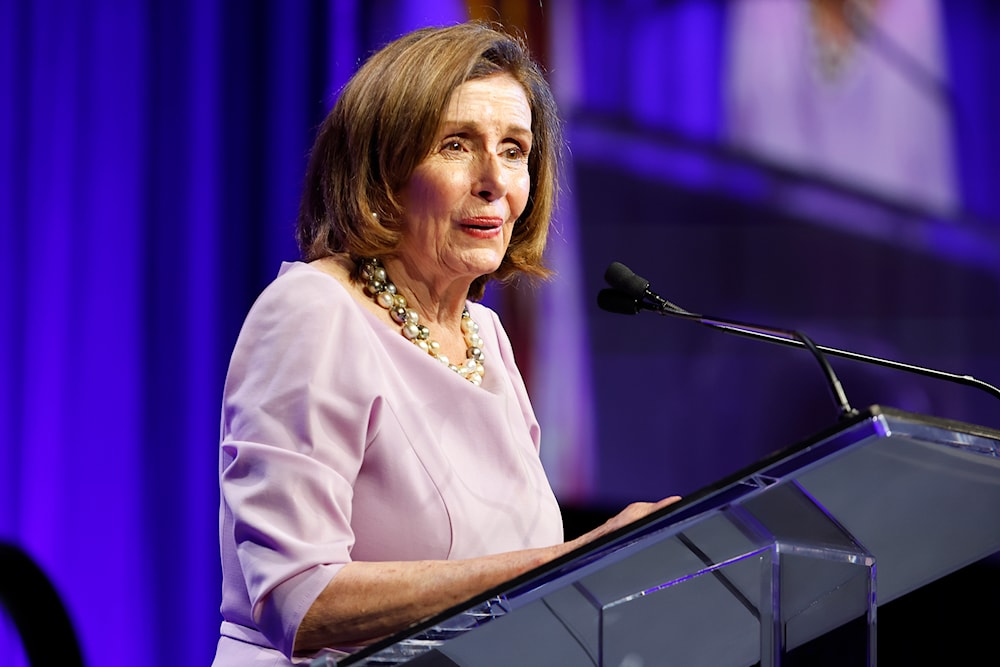Pelosi slams ex-Australia PM for saying Taiwan is Chinese territory
Former US House Speaker Nancy Pelosi had inflamed tensions between the US and China in 2022 by making a visit to Taiwan that Beijing understood as an intent to increase tensions.
-

Democratic Speaker Emerita Nancy Pelosi speaks at the North Carolina Democratic Unity Dinner fundraiser in Raleigh, N.C., Saturday, July 20, 2024 (AP)
Former Australian Prime Minister Paul Keating and former US House Speaker Nancy Pelosi are taking jabs at each other over Taiwan after the latter criticized Keating's recent comments regarding its status.
The controversy began when Pelosi, during an interview with Australia's ABC network, condemned Keating's description of Taiwan as "Chinese real estate," calling it a "stupid statement." Pelosi emphasized that Taiwan was a democracy governed by its people and not just a territory of China. "Taiwan is Taiwan," she said.
It is noteworthy that the US, as per agreements with China, must abide by the One-China Principle, in accordance with which the People's Republic of China is seen as the sole representative of China and the Chinese people, and that Taiwan is an inalienable part of China.
"I've no idea about Keating, but I think that it was a stupid statement to make, and I don’t know what his connection is to China that he would say such a thing," Pelosi added.
"But it is really not in the security interest of the Asia-Pacific region for people to talk that way."
Keating, who has consistently advocated for Australia to avoid entanglement in a potential conflict over Taiwan's future, responded swiftly. He accused Pelosi of nearly provoking a military confrontation between the United States and China during her 2022 visit to Taiwan.
Keating argued that the then-House speaker's visit was "recklessly indulgent" and suggested that it had put the Asia-Pacific region's security at risk.
Pelosi's 2022 visit marked the first time in 25 years that a US House Speaker visited Taiwan, a move that drew significant ire from Beijing, which asserts that it has sovereignty over the island. The visit led to heightened military tensions, with China conducting extensive military drills, including ballistic missile tests over Taiwan.
In his statement, Keating criticized the ABC for allegedly not providing Pelosi with the full context of his remarks. He clarified that he believes Taiwan's future should be resolved through peaceful social and political means, without the need for confrontation or violence. Keating emphasized that his stance was driven by Australia's national interests rather than those of the United States or Taiwan.
Not important for Australia
The former Australian premier also reiterated his position that Taiwan's democratic choices are not of vital importance to Australia, comparing them to the political systems of other Southeast Asian nations like Cambodia and Laos.
Keating's comments have not gone unchallenged in Australia. Prime Minister Anthony Albanese, while acknowledging Keating's right to his views, stated that his government must prioritize Australia's contemporary needs. "The world is different," Albanese remarked, noting the significant changes in global dynamics since Keating's time in office from 1991 to 1996.
China has repeatedly warned the US to commit to the "One China" policy, which Washington claims it adheres to and that its actions comply with.
The Asian giant also criticized Washington for aiding efforts to promote "Taiwan independence" through military strengthening and declared its opposition to the US interference in Taiwan affairs in any way or under any pretext.
Earlier in July, Beijing announced that it had suspended important arms control and non-proliferation negotiations with the United States, in response to the US' continued supply of weapons to Taipei.
Lin Jian, a spokesperson for the Chinese Foreign Ministry, said that the US actions had "severely damaged the political atmosphere necessary for continued arms control consultations between the two sides."
In light of that, Li said, "China has decided to suspend talks with the US on holding a new round of arms control and non-proliferation consultations," adding that "the responsibility for this situation lies entirely with the US," directly accusing Washington for the interruption of discussions.

 4 Min Read
4 Min Read








